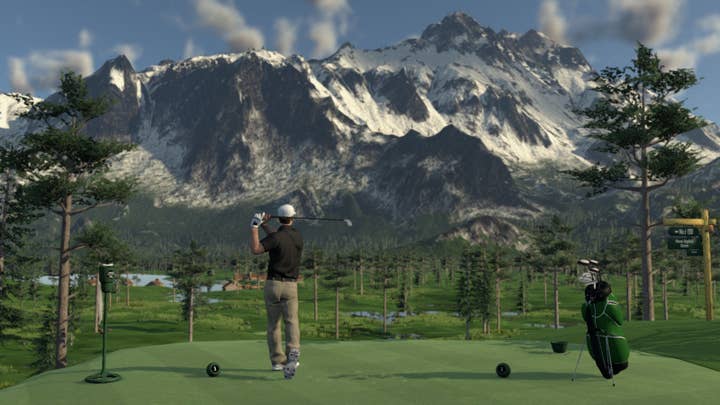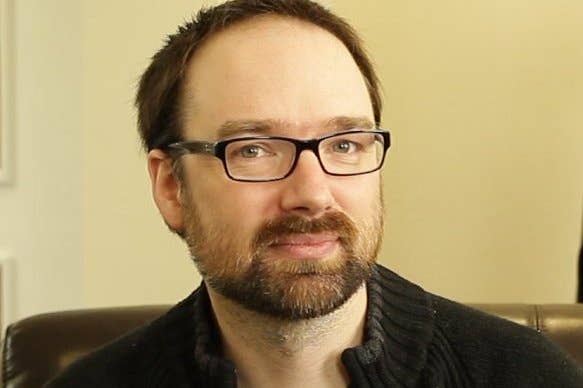HB Studios: No licenses, no problem
The huge cost of licensing has seen many sports neglected by big publishers - HB Studios is working on the solution
The small town of Lunenberg has a population of 2,300 people. In the summer, when its transient residents return to occupy their second homes, that number might hit 5,000. It's a small, verdant, strikingly picturesque place, and it's the home of HB Studios, an independent console developer of 14-years standing, which looked beyond more obvious Canadian locales to make its home in this remote stretch of Nova Scotia's coastline.
In case you're out of the loop, the last decade or so has been particularly tough on independent studios whose revenue depended on the market for packaged console games. The list of companies that either sold up or burned out in that period is both long and distinguished, so it's heartening to encounter a survivor like HB. According to Peter Garcin, an executive producer at the studio, that ability to "weather the storm" can be attributed to a range of influences - including a long and mutually beneficial relationship with EA - but its unlikely location has played a pivotal role.
"How, as a smaller independent developer, can you make sports games in a more accessible way?"
"It's a way of life thing," he says. "You're close to the beach, there's a ton of outdoor activities, the cost of living is really low, it's naturally beautiful, no traffic, no gridlock every morning. Those are really, really big positives.
"We have people who've been here for ten years. Most people, once they come, they don't leave. Retention is not usually a challenge. It's visibility - making sure people know that we exist."
When I talked to Frontier's David Walsh recently - who, incidentally, played a key role in establishing Frontier's Nova Scotia outpost - he emphasised the importance of people to surviving and succeeding as an independent developer; building your team carefully, and keeping everybody happy and fulfilled enough to stay. The games industry has a reputation for doing just the opposite, particularly on console releases with big budgets and rigid release schedules. HB is a veteran of just that kind of product, and yet Garcin and producer Anthony Kyne seem to be anything but stressed out game developers.

When it comes to winning the fight against crunch and burnout, being away from busy, expensive cities like Montreal and San Francisco can be a great asset. According to Kyne, it's easier to take the odd late night when you have Lunenberg just outside the window.
"Before I spoke to HB I didn't know there was a [development] community in Nova Scotia," says Kyne, a veteran British developer who joined the studio in 2011. "After living in London, where I commuted for an hour each way every single day, being able to drive three minutes to get to work, pop home at lunchtime, and get out of the office at 4.30 and play a round of golf. It's a really nice place to work. On the golf game we're doing, I can go home for dinner and come back to the office to get more work done."
That "golf game" is The Golf Club, HB's most ambitious self-published game to date, and an attempt to remedy an unfortunate side-effect of the way game development has changed. HP spent a decade working on franchises for the likes of EA, Konami and THQ, often on niche sports like rugby and cricket. As rising costs pushed publishers towards fewer, bigger games the audience for those sports no longer justified the investment, and so the niche franchises dried up. The way Garcin sees it, an independent studio like HB is well placed to fill the gaps left by that trend.
"We didn't need licenses. I remember putting George Courtney, the football referee, on the front of a box and nobody said a word"
"That's what we're trying to figure out: How, as a smaller independent developer, can you make sports games in a more accessible way? We're finding a way to do those well, even though they can't support the budgets that FIFA and Madden have. That's really important to us. As a creative studio, as a business, how do develop titles of that scale effectively, sustainably, and in a way that's still compelling to players as well."
A big problem with sports games for any company without vast resources at its disposal are licensing costs, which Kyne says have spiralled upwards since his earliest work in the genre, on games like Kick Off, Championship Manager and Player Manager. Today, if you want to tackle a specific sport and you aren't EA or Take Two the general rule is to abstract as much as possible; back then, it was anything goes.
"We didn't need licenses," Kyne says. "I remember putting George Courtney, the [football] referee, on the front of a box, and nobody said a word. We had Andy Gray on Kick Off 2. I mean, it was wrong, and it's better now that people are earning some money out of it, but it's just become stupid in terms of the expense.
"Look at a sport like Formula One. I had a friend who worked at Sony on that franchise, and Formula One basically owns the game. They [Sony] couldn't do anything to it without them having final say. You're restricted in development and it's costing you millions, so even breaking even is really hard."
Neither Kyne or Garcin argue the impossibility of official licensing as a good thing, exactly, but they do believe it can be turned to the studio's advantage. HB doesn't want to tread the same fanciful path as Mario Golf and Everybody's Golf, but it's also very aware of the subtle creative impact all those brands and likenesses have on a series like Tiger Woods PGA Tour - HB has worked on several entries in the series, after all, and it had assembled a team to work on Tiger Woods 15 before the project was cancelled by EA.

Guided by the huge investment in licensing deals, the biggest sports franchises all tend towards a presentation and structure that mimics broadcast TV. This is 'realistic' in terms of the way people tend to see the sport at its highest level, but it's still an abstraction of what sport is actually like to play. With The Golf Club, HB wants to capture the experience of being out on the course, rather than the experience of an ESPN broadcast.
"That's what we try to focus on," Garcin says. "What's the actual game? What do people really like to do? How do we make that the core loop, and make that as good as possible?"
"These smaller sports can't sustain an annual release, but they can sustain ongoing content and continual community engagement"
The direction The Golf Club will take when it's released later this year - HB is aiming for the summer - will largely be decided by its community, but Garcin and Kyne are keen to avoid another quality associated with sports franchises: annualised releases. Golf, in particular, has never been well suited to justifying a new $60 purchase every 12 months, so HB is building The Golf Club to be a service; a rock solid game as the platform, with a broad range social features and regular updates to sustain the interest of its audience. With total freedom from the details of the professional sport and effective use of its community, there isn't much of a reason that we'll ever see The Golf Club 2.
"That's almost exactly how we see Golf Club. It's not an annualised thing that we're looking to do," says Garcin. "We're committed to supporting this post-launch. These smaller sports can't sustain an annual release, but they can sustain ongoing content, and ongoing updates, and continual community engagement. It offers up so many possibilities, as well: persistence of play across seasons and years. That's the direction we're going.
"It's an evolutionary thing for us. We want to get it out there and see how it evolves within the community, and really respond to the content and modes that people want to see in the game. We'll take it from there, but it's exploratory.. It's new for us. No other sports games are really doing this."

